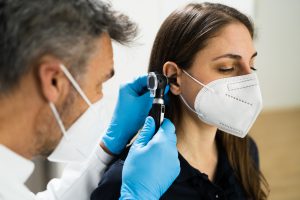 During a physical examination, doctors inspect different parts of our bodies to check for symptoms or potential health problems. They may peer inside our ears, shine a light in our eyes, and look inside our mouths for tell-tale signs, here are some of the medical reasons why they do so:
During a physical examination, doctors inspect different parts of our bodies to check for symptoms or potential health problems. They may peer inside our ears, shine a light in our eyes, and look inside our mouths for tell-tale signs, here are some of the medical reasons why they do so:
- Shining a light in your eyes- Our eyes can reveal a great deal about our health. Doctors shine a light in our eyes to evaluate how well our pupils respond. In healthy eyes, the pupils will shrink and maintain their round shape. Doctors may also look at the color of your eyes during an examination. Red eyes mays signal irritation and yellow eyes can serve as a warning sign for liver problems.
- Peering into your ears – By using an otoscope, doctors can check for signs of infection. Some otoscopes can send a puff of air into the ear canal, this helps doctors to see your eardrum and how it moves when there is pressure in your ear canal.
- Pressing your stomach-Doing so can help doctors determine if the size of your internal organs is normal. Additionally, your doctor may check for pain, tenderness, or firmness. Doctors may also listen to your stomach with a stethoscope to check for bowel problems.
- Looking into your mouth- Our mouths can also tell us a lot about our health. Doctors look at the back of our throats to see if there are any infections. They also look at the color and texture of our tongues which can be indicative of infections or other underlying medical conditions.
- Listening to your heart or lungs – By using a stethoscope, your doctor may listen to your heart to check for heart murmurs, irregular rhythms, or signs of congestive heart failure. Doctors listen to your lungs to check for wheezing, fluid build-up, or infections.
Getting an annual physical is very important for your health. A physical examination can help your doctor to detect problems that can pose a serious threat to your overall wellness.
To schedule an appointment with a doctor at Jamaica Hospital Medical Center, please call 718-206-7001.
All content of this newsletter is intended for general information purposes only and is not intended or implied to be a substitute for professional medical advice, diagnosis or treatment. Please consult a medical professional before adopting any of the suggestions on this page. You must never disregard professional medical advice or delay seeking medical treatment based upon any content of this newsletter. PROMPTLY CONSULT YOUR PHYSICIAN OR CALL 911 IF YOU BELIEVE YOU HAVE A MEDICAL EMERGENCY.
